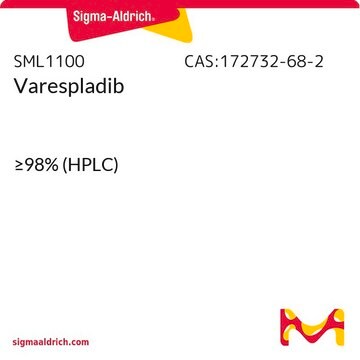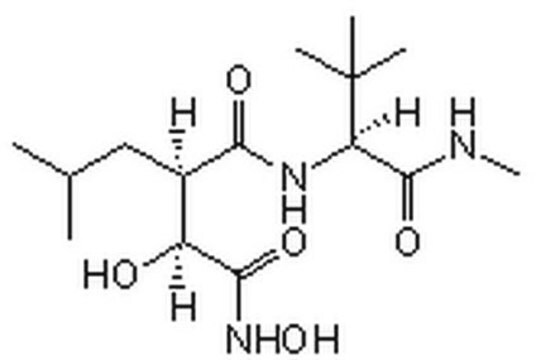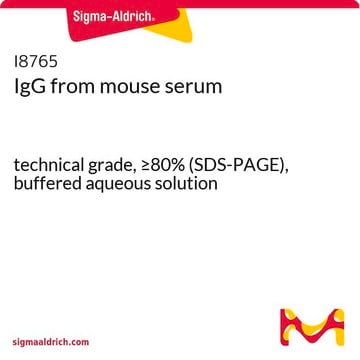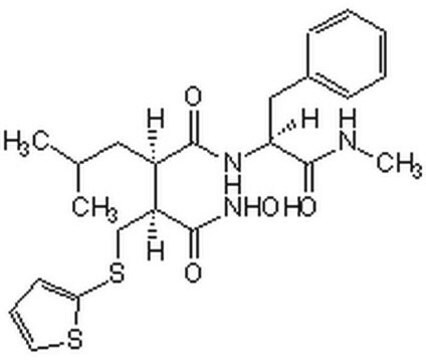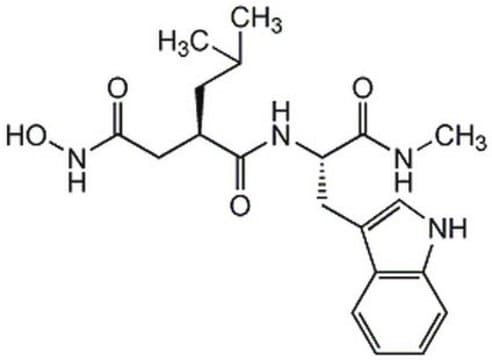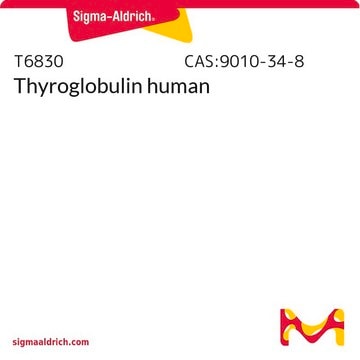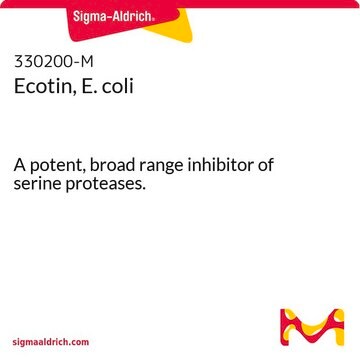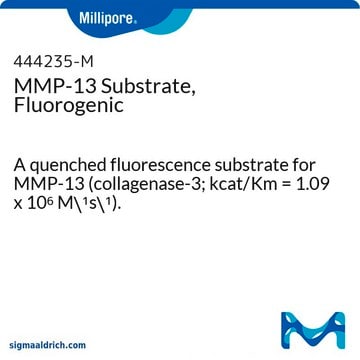M2699
Marimastat
≥98% (HPLC), solid, MMP inhibitor
Sinónimos:
BB2516, (2S,3R)-N4-[(1S)-2,2-Dimethyl-1-[(methylamino)carbonyl] propyl]-N1,2-dihydroxy-3-(2-methylpropyl)butanediamide
About This Item
Productos recomendados
product name
Marimastat, ≥98% (HPLC)
Quality Level
assay
≥98% (HPLC)
form
solid
solubility
DMSO: ≥20 mg/mL
shipped in
wet ice
storage temp.
−20°C
SMILES string
CNC(=O)[C@@H](NC(=O)[C@H](CC(C)C)[C@H](O)C(=O)NO)C(C)(C)C
InChI
1S/C15H29N3O5/c1-8(2)7-9(10(19)13(21)18-23)12(20)17-11(14(22)16-6)15(3,4)5/h8-11,19,23H,7H2,1-6H3,(H,16,22)(H,17,20)(H,18,21)/t9-,10+,11-/m1/s1
InChI key
OCSMOTCMPXTDND-OUAUKWLOSA-N
Gene Information
Application
- metalloproteinase 2/9 (MMP2/9), to study its effects on exercise-mediated interleukin-6 (IL-6) release in mice
- metalloproteinase, to determine protease activity in Pseudomonas aeruginosa cultures
- metalloproteinase 10 (MMP10), to study its effect on monoclonal antibody H3 binding to MMP10
Biochem/physiol Actions
Storage Class
11 - Combustible Solids
wgk_germany
WGK 3
flash_point_f
Not applicable
flash_point_c
Not applicable
Certificados de análisis (COA)
Busque Certificados de análisis (COA) introduciendo el número de lote del producto. Los números de lote se encuentran en la etiqueta del producto después de las palabras «Lot» o «Batch»
¿Ya tiene este producto?
Encuentre la documentación para los productos que ha comprado recientemente en la Biblioteca de documentos.
Los clientes también vieron
Nuestro equipo de científicos tiene experiencia en todas las áreas de investigación: Ciencias de la vida, Ciencia de los materiales, Síntesis química, Cromatografía, Analítica y muchas otras.
Póngase en contacto con el Servicio técnico
